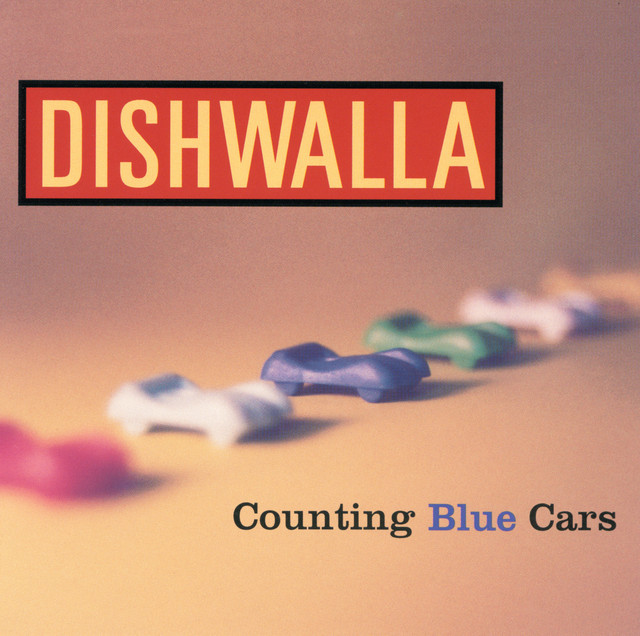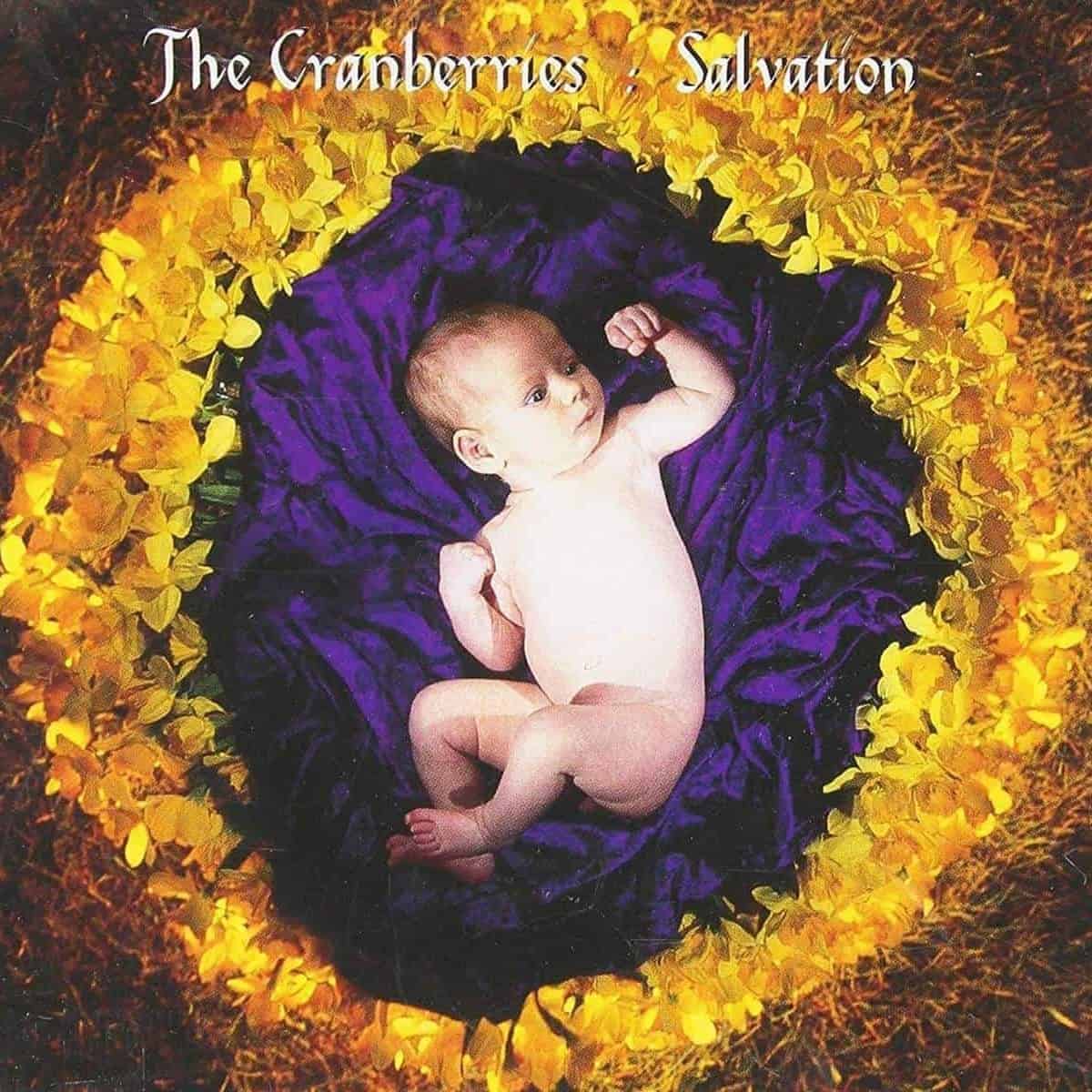Welcome to the first installment of Crossing Wires: The Month In Electronic Music. Each month, Ted Davis will tour us through the world of electronic music, a landscape he's deeply familiar with as a fan, a journalist (perhaps you've read some of his previous work for Stereogum), and an artist under the DJ Stepdad moniker. We're looking forward to seeing where this goes.
Dekmantel is an electronic institution that manages to cater to summer party-goers and heady oddballs alike. It began as a venue-hopping series, launched by Hague natives Thomas Martojo and Casper Tielrooij, in 2007. By 2009, it had expanded into a label, platforming sunny, sputtering releases from San Proper, Juju & Jordash, Vakula, and others. 2014 found Dekmantel testing the waters on a full-blown festival, as an effort to reinvigorate Amsterdam’s dance scene. The three-day concept was a success, and turned into an annual affair. Since, Dekmantel has become a bastion for feel-good raving with thoughtful murmurs.
Dekmantel flaunts an approachable smile, but it has become increasingly highbrow over the years. As an imprint, Dekmantel has played a pivotal role propelling the careers of DJ Python, Roza Terenzi, Jex Opolis, and many more to greater heights. "We always look for new artists to see if we can help them elevate from local artists who started making music to someone who tours internationally, and can maybe have big slots on our festival," says Olf van Elden. He works as an A&R for Dekmantel, after getting involved as a byproduct of DJing the series beneath his Interstellar Funk moniker. Unlike many labels, Dekmantel provides its artists tools to book tours and elevate branding; long-term goals are a priority, and Dekmantel is a 360-degree resource that takes longevity into account before incorporating a newcomer into the fold.
2024's Dekmantel festival was particularly impressive. In honor of hitting the decade mark, the event sprawled over 10 days, instead of its historic three. Churches, ammunition factories, and patches of woods became striking backdrops for shows by artists ranging from Kali Malone to Joy Orbison to DJ Sprinkles. Boisterousness and introversion coalesced.
Dekmantel also recently issued the stacked compilation Dekmantel Ten: A Decade of Dekmantel Festival, which hit shelves shortly after the festivities wrapped. The record came to life in just over two months, van Elden pulling off the daunting task on a tight deadline. He cites the box set as one of the most ambitious projects Dekmantel has been behind. "We were very impressed by everyone who said yes," he beams. It encompasses 43 previously unheard tracks from lauded figures, all of whom have performed at Dekmantel. Three hours and 43 minutes of ornate bangers are spread across seven discs, which include contributions from what van Elden categorizes as "legends," "talents," and "new artists."
Aside from its initial heftiness, the first thing that strikes me about Dekmantel Ten is how pensive it is. The record is front-loaded with peppy cuts from Young Marco, Palms Tracks, and Eris Drew and Octo Octa. But it leads the listener on a shadowy journey as it progresses. While respectively known for their grayscale IDM, Sky H1 and Lee Gamble each handed in brooding takes on drum and bass. JakoJako, Sterac, and Adrian Sherwood all flirt with varying degrees of dubbiness. There’s plenty of rumble to be indulged in, too; Nick León, Verraco, and Wata Igarashi offer particularly low-slung, distorted standouts. Dekmantel Ten resolves on a mellow note, with the clopping DJ Python cut "Mare" — one of Brian Piñeyro’s most introspective pieces since his 2022 Luis EP, 057 (Schwyn).
As DJs are wont to do, I frequently find myself obsessed with mixes archived on YouTube. I spent this past August fawning over a Suzanne Kraft and Jonny Nash video from Dekmantel 2018, presented by the now-defunct online station Red Light Radio. The all-vinyl set is centered on wonky disco sounds that were in vogue in the mid-2010s, when hazy, retro house dominated the conversation. Holding up this gem alongside Dekmantel Ten pinpoints the drastic ways in which dance music has evolved in the wake of the pandemic. On the new compilation, beats are zippy, synths are pristine, and the overarching essence is deep and contemplative. It’s a snapshot of future textures swirling in real time.
PEAK TIME
Monolake - "Cute Little Aliens"
As I recently detailed in a feature for DJ Mag, a gritty new strain of dub techno is rapidly coming into the fold. Projects like Purelink and labels such as Motion Ward are reimagining '90s ambient rave sonics for the internet age. Getting into this new wave of producers encouraged me to finally give the reggae-meets-techno fusion’s classics the attention they deserve. Through this exploration, I discovered Robert Henke, the co-creator of powerful DAW Ableton Live. His new record as Monolake, Studio, is a latter-day milestone for the Berlin-based artist. "Cute Little Aliens" embodies the album’s uneasy, creaky energy. Breathy effects and serpentine washes of noise crawl from a bed of dark percussion. All too often, minimal dance music has a tendency to cater to sterile lounge environments. But Monolake is continuing to connect dub techno with its gravelly roots.
Holy Tongue Meets Shackleton - "The Other Side Of The Bridge"
Among fans of grim techno and dubstep, Shackleton is a vital force. The English producer found his footing in the mid 2000s, and he spent the ensuing decades rolling out morbid tracks and co-running the label Skull Disco with Appleblim. But in 2024, he’s taken turns towards earthiness. In June, Drag City dropped the Shackleton and Six Organs Of Admittance partnership Jinxed By Being. Just over two months later, he returned with the Holy Tongue collaboration The Tumbling Psychic Joy Of Now. Backed by London’s ambitious AD 93, "The Other Side Of The Bridge" finds clattering, half-time rhythms and chilly folk-jazz instrumentation doused in layers of murky effects. Though Holy Tongue notably includes dance producer Al Wootton — who came up in the 2000s UK bass sphere as Deadboy — this track is ill suited for debauchery. It’s hopeless, soily, and discombobulating.
Nídia & Valentina - "Estradas"
The crew orbiting Portuguese label Príncipe Discos is putting a fluid spin on footwork. Nídia is at the core of this boisterous scene. Her new record with Moin and Holy Tongue drummer Valentina Magaletti, Estradas, arrives via the imprint Latency. Magaletti is a rising star in the avant-garde universe in her own right, appearing at festivals such as Unsound and Dekmantel this summer. The title-track exudes the gridless, polyrhythmic swagger that is allowing Nídia and Magaletti to respectively transcend. It opens with convivial marimba hits that seem sketched from crayon. But things become abruptly cocksure when a sampled shout permeates the bliss. Marching band rudimental snares clack between abrasive shouts and a nasty bassline. It’s hypnotic, albeit wonderfully overstimulating.
Tim Reaper & Kloke - "Juice"
Thanks to recent efforts from Nia Archives, SHERELLE, and PinkPantheress, jungle is back in a big way. But Tim Reaper has been there from the jump, pioneering the uptempo resurgence with enviable authenticity. In Full Effect, Reaper’s new record with kindred Australian spirit Kloke, arrives via Hyperdub. Instead of adapting to the UK label’s legacy of gloomy footwork and 2-step, the pair handed in the first drum and bass album in Hyperdub’s 20 year run. "Juice" is nostalgic, pairing euphoric pads and a Korg M1 bassline. But skittering percussion thwacks keep things forward-bound and chaotic. It’s perfectly tailored for the breathless pinnacle of a sweaty set.
Hodge - "Head Drop"
"Head Drop" opens with an overdriven piano line that sounds as if it should give way to slow-motion grime. But things take a sharp turn a few bars later. A voice sample that calls to mind a robot baby babbles atop a raucous dembow-meets-dubstep lurch. The track from longstanding Bristol producer Hodge appears as the B-side of a 12" split with Aquarian, issued by octane-heavy Colombian imprint TraTraTrax; it embodies the label’s boisterous ethos. "Head Drop" is one of the most confrontational, gripping cuts I’ve heard in quite some time, like a ceramic vase exploding to smithereens in the blink of an eye.
Maral - "mashhad hardcore"
Los Angeles-based multi-instrumentalist Maral has honed a distinct strain of club-punk that toys with Iranian folk and crunchy production. It’s a searing formula that has allowed her to collaborate with Panda Bear and share stages with Black Dice. Maral’s new EP, Patience, is her first for New York City label and streetwear brand PTP. In true Maral fashion, the song is arid and stylistically perplexing. Clocking in at just under one minute, "mashhad hardcore" gets my vote as the EP’s essential cop for DJs. It opens with footwork-y sequencing that sounds like it could have been generated on a child’s toy keyboard. Guitar feedback and atonal vocals allow "mashhad hardcore" to evoke what might have happened if Genesis P-Orridge made music for disoriented sunrises.
Jon Hopkins - "part vii - dissolution"
Following his 2001 debut, Jon Hopkins has consistently established himself a master of pristine trippiness. His last LP, 2021’s aptly titled Music For Psychedelic Therapy, was fixated on the magic of ketamine treatments — as clinical as it was wondrous. Ritual, Hopkins’ first record in three years, builds on this streak of airiness, aided by a cast of collaborators including 7RAYS and Clark. The machine-constructed symphony is inspired by a hero’s journey, and these nine tracks are deep, weightless, and primal. "part vii - dissolution" captures this cavernous quality. For the duration of the piece, a heavenly pad evolves so delicately, you can barely deduce the point at which a whispered secret has turned to a shouted affirmation. It’s a testimony to Hopkins’ knack for gentle, wordless narratives.
Jamie xx - "Treat Each Other Right"
The reaction to Jamie xx’s long-awaited second full-length, In Waves, has been divisive. Some critics feel that The xx member-turned-producer has strayed too far from the dance floor, becoming an outsider on his home turf. However, I was taken by the album, which presents an extremely accessible take on UK club music. The song-oriented tracks on In Waves are a bit too saccharine to thrive within the context of a DJ set. But the single "Treat Each Other Right" strikes a solid balance. It sparked as an homage to an upbeat, sonorous sound that is booming in London. The beat erratically shifts tempo around a soulful vocal hook, making for one of the most fluid cuts on an album that shuffles in and out of focus.
Floating Points - "Fast Forward"
For a while, it seemed as if Sam Shepherd was content to turn his Floating Points alias into an arty neoclassical project. After painting left-field rhythms in a classy glow on the 2019 LP Crush, he released the Pharoah Sanders collaboration Promises at the height of COVID lockdowns. Both records are stellar, but exist a world away from the propulsive, off-kilter sounds Shepherd came up touting. On the latest Floating Points LP, Cascade, Shepherd surprisingly turns the vigor up higher than ever before. Recording on a laptop in the California desert, he swapped spindly Buchla patches for brash, four-on-the-floor beats. "Fast Forward" is one of the longer tracks on the record. Across seven-and-a-half minutes, blocky drum machines churn beneath cinematic arpeggiations. By the time it’s hit a climax, things have somehow reached a jaw-dropping fever pitch — a testament to Shepherd’s dynamic touch.
Caribou - "Do Without You"
It’s funny that three of 2024’s boldest electronic records landed at the end of festival season. On the heels of Cascade and In Waves, Canadian legend Dan Snaith unearthed his Caribou persona for the new album Honey. Snaith’s music has touched on everything from bohemian disco to utopian IDM since he emerged in the early 2000s, but Honey sets its sights straight on the big tent. "Do Without You" (not to be confused with 2015’s “Can’t Do Without You”) encapsulates the record’s slick, yet exaggerated vibe. Wiry synth bloops churn over a tech house groove. Sugary, AI-twisted vocals are icing on the cake, pushing back on Snath’s signature empathetic mumble-singing. Snaith is approaching his 50s, and Honey proves that he’s growing fearless with age.
THE AFTERS
overmono nooooo https://t.co/lS0x2U6uhP
— J◯ZEF® (@thejozefwhite) October 1, 2024






